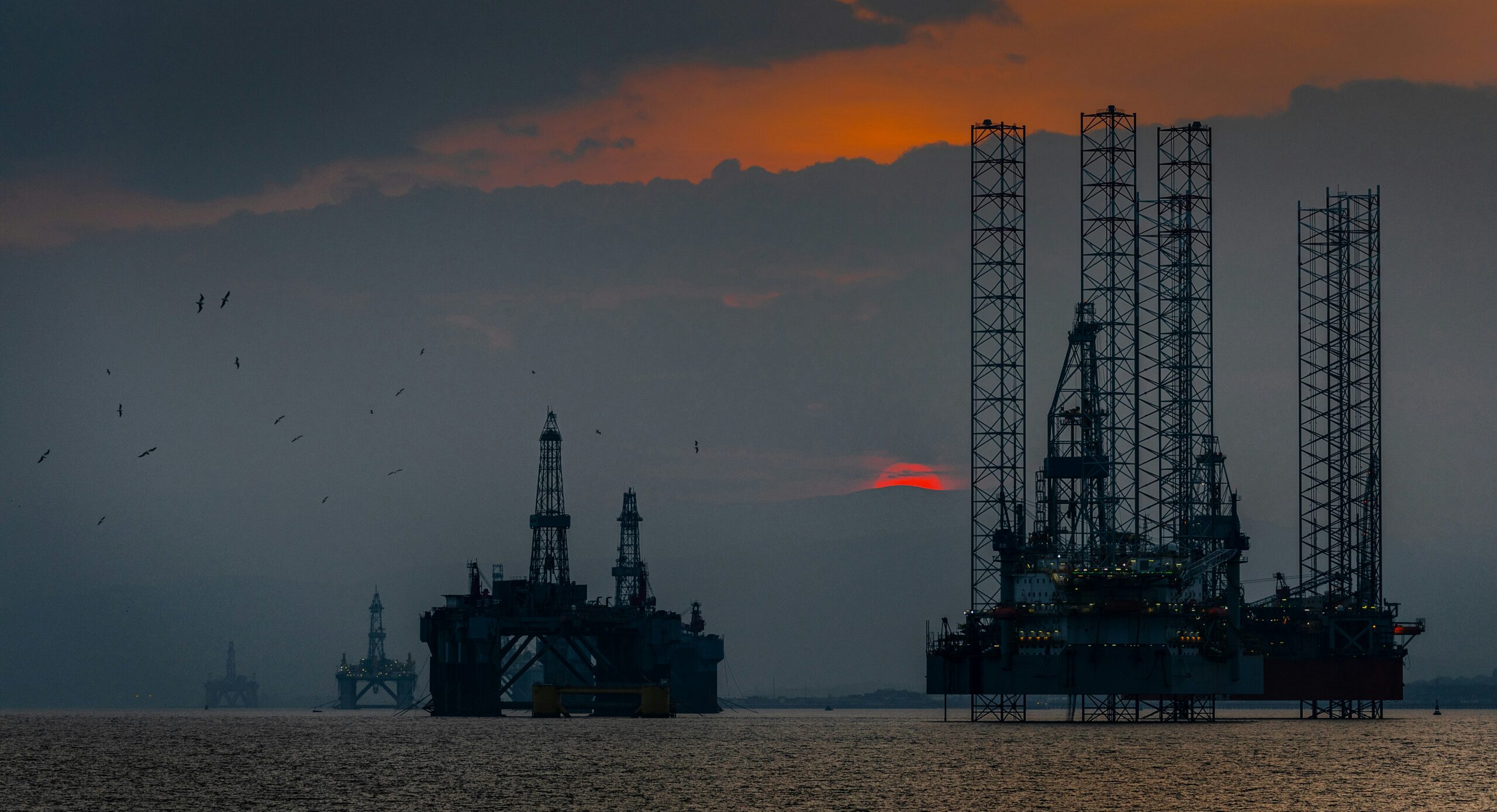
25 May The Threat of Offshore Drilling: Impact on Dolphins and Marine Life
As advocates for marine conservation, it’s crucial to shed light on the detrimental effects of offshore drilling on our oceans and the precious creatures that call it home. Among those most profoundly affected are dolphins, beloved icons of the sea known for their intelligence, grace, and social nature. Here, at Blue Wave Adventures Dolphin Tours and Cruises, we are deeply concerned about the impact of offshore drilling on dolphins and other marine life. Let’s explore the significant threats posed by offshore drilling and its ripple effects throughout marine ecosystems.
- Noise Pollution: One of the most immediate and pervasive effects of offshore drilling is noise pollution. The process of drilling involves the use of seismic airguns, which emit loud blasts of sound underwater to locate oil and gas deposits. These deafening noises can travel for miles and disrupt the delicate acoustic environment that dolphins rely on for communication, navigation, and hunting. Prolonged exposure to such noise pollution can cause stress, disorientation, and even hearing loss in dolphins, impairing their ability to thrive in their natural habitat.
- Physical Habitat Destruction: Offshore drilling operations often involve the installation of drilling platforms, pipelines, and other infrastructure on the ocean floor. These structures can disrupt and destroy critical habitat for dolphins and other marine life, including coral reefs, seagrass beds, and feeding grounds. Additionally, the process of drilling can release toxic chemicals and pollutants into the water, further degrading the quality of the dolphins’ habitat and posing long-term health risks to marine ecosystems.
- Oil Spills and Contamination: Perhaps the most widely recognized threat of offshore drilling is the risk of oil spills and contamination. Accidental spills, leaks, and blowouts during drilling operations can release vast quantities of oil into the ocean, coating the surface and seeping into the water column. Oil is highly toxic to marine life, causing a range of devastating effects, including suffocation, poisoning, and reproductive failure. Dolphins are particularly vulnerable to oil pollution due to their need to surface for air, increasing their exposure to contaminated waters.
- Disruption of Food Chains: Offshore drilling can disrupt the delicate balance of marine food chains, impacting the availability of prey species for dolphins and other predators. Oil spills and habitat destruction can decimate populations of fish, crustaceans, and other marine organisms that dolphins rely on for sustenance. As prey becomes scarce or contaminated, dolphins may be forced to travel greater distances in search of food, putting additional stress on their already vulnerable populations.
- Long-Term Population Decline: The cumulative effects of offshore drilling, including noise pollution, habitat destruction, and oil contamination, can have devastating consequences for dolphin populations in the long term. Studies have shown that dolphins exposed to chronic stressors such as noise pollution are more susceptible to disease, reproductive failure, and population decline. As their habitats become increasingly degraded and polluted, dolphins face mounting challenges to their survival, threatening the health and stability of marine ecosystems as a whole.
The threat of offshore drilling looms large over dolphins and other marine life, posing a grave risk to their well-being and survival. As stewards of the ocean, it is our responsibility to advocate for sustainable and environmentally responsible practices that protect marine ecosystems from the harmful effects of offshore drilling. By raising awareness, supporting conservation efforts, and demanding action from policymakers and industry stakeholders, we can work together to safeguard the future of dolphins and ensure that they continue to inspire wonder and admiration for generations to come. To Book your dolphin tour with Blue Wave Adventures, just click here!


Sorry, the comment form is closed at this time.